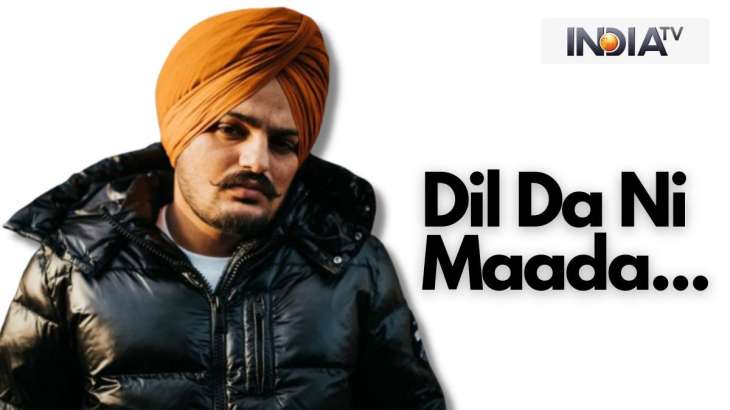Sidhu Moose Wala: The flawed legend, who was levels above the rest

The Prophecy
Chobbar De Chehre Utte Noor Dasda,
Ehda Uthuga Jawani Ch Janaja Mithiye.
(The Glow on the face indicates,
He will die young.)
29 May, 2022 – It Arrives
Mard Mashookan Wangu Maut Udeekda,
Khaure kadon khadkau darwaja mithiye.
(He anticipates death as he would the arrival of his lover,
When will it knock on the door)
Sidhu Moose Wala got assassinated in his black jeep just two weeks after his song titled ‘The Last Ride’ came out. The song was a tribute to legendary rapper Tupac Shakur, who met the same fate as Sidhu. It was like he told everyone the inevitability of it all. It was like he knew it all along.
‘Levels’
Punjabi Music Industry has seen some big names come in and rule the entire country. Starting with Honey Singh, Badshah, Diljit Dosanjh, Amy Virk, Gippy Grewal, Sharry Mann, Gurdas Mann, and the list can go on and on and on. But seldom does a singer come in and achieve status and following as fast as Moose Wala did. He captured the imagination of his audiences in a way that wasn’t explored before.
In times, when the Punjabi Music Industry was churning out meaningless raps and songs, which more often than not objectified women, these songs by Sidhu captured the imagination of young India. Singers sang. Sure they did, but Sidhu sang his heart out, his lyrics spoke to you, his lyrics hit you, and then got in touch with parts of you that you did not know even existed. His song ‘Bappu’, for that matter, has a line that goes like this, ‘Duniya di kehdi sheh chahidi das baapu, Putt tera hun aine joga ho gaya ae.’
This roughly translates to,’ Just let me know what you need, father. Your son is finally capable of giving you everything you need.’ Now, this isn’t to say, that these kinds of songs weren’t done before. But the timing of it all mattered, and it mattered what were the songs that were coming out of the industry at that time.
295, which is often regarded as one of his finest works, talks to you and presents the reality of the world we live in.
‘Jana Khana Dinda Ae Vichar Uth Ke
Injh Lagge Rabb Jivein Hath Khade Kar Gaya
Padha Jadon Subah Akhbar Uth Ke’
(Anyone just gets up and speaks,
Once I wake Up & Read The Paper,
It Looks Like Even God Is Done With This World.)
Wasn’t he right? Is this not the reality of the situation we live in? We have got countless keyboard warriors and all it takes is a look at the newspaper to figure out what is wrong with the world we live in. Well, this is just the start. Read this.
‘Tu Dabb Gaya Duniya Ne Veham Paaleya
Uth Putt Jhoteya Oye Moose Waleya
Je Aivein Reha Geetan Vich Sach Bolda
Aaun Wali Peedhi Educate Milugi’
(You faltered, and the world tried to keep you down,
Get up, if you keep singing facts,
The Next Generation Would Grow Up Educated)
Never Fold, Never Back Down
These lines not only resonate with the rebel within you, but also motivates the part of you that forgot what it was like to put up a fight, and that is what made Sidhu a legend. To motivate, inspire, and showcase reality all within a few lines is what made him levels above the rest.
It isn’t to say that Moose Wala’s songs were without their flaws. There were countless things that one could point to, but for every Tochan, there was a Selfmade. For every Dhakka, there was a 295. For every SYL, there was a East Side Flow, and that is what made Sidhu a flawed legend.
He did not mind speaking about his political philosophies, his beliefs and everything he believed in. Sidhu Moose Wala’s cultural influence has already outlived him, but it will long outlive even his death. The shock of his demise is still there, but it will eventually wear off. But his songs won’t. Why? Because they are real. Straight from a man’s heart, who refused to bow down to any set social conventions and standards of what a celebrity should talk and walk like.
After all, with all said and done – Dil Da Ni Maada, Tera Sidhu Moose Wala.
Latest Entertainment News
For all the latest Entertainment News Click Here
For the latest news and updates, follow us on Google News.

